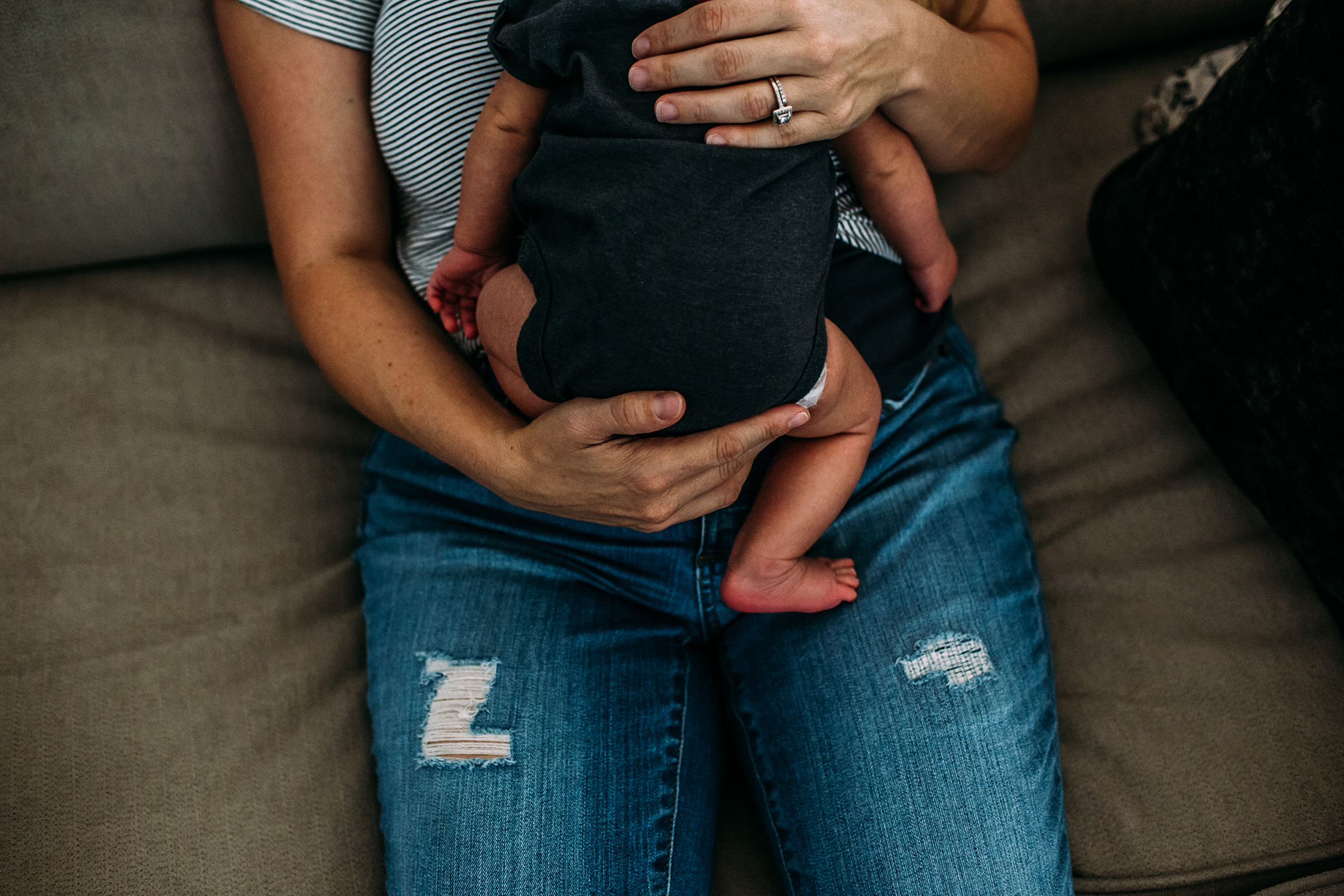
For America’s exhausted mothers, the pandemic has offered a million unwelcome lessons. A personal example: if you let an unsupervised 7-year-old swing, Tarzan-like, on a jump rope hung from the sun-porch ceiling, she will eventually kick out a window.
Mostly, we moms learned that we aren’t as invincible as society expects, or as we aspire to be. We were supposed to be fierce “mama bears.” Instead, we struggled with depression. We were supposed to “keep calm and carry on.” Instead we wrestled with insomnia. We were supposed to be the hands that gently rock the cradle. Instead we drank ourselves dizzy. And “if momma ain’t happy ain’t nobody happy” hasn’t seemed to apply, as we watched other parts of society rush back to normal, while schools that we depended on stayed closed.
But the struggles of America’s mothers might just inspire us to build a better future.
How so? Because the Mommy Wars – that whole divisive business of “this is who I am, and I’m better than you” – were all about armoring up. And now we’ve all seen the chinks in our own armor. After the past year, moms know for a fact that we’re all vulnerable and that our behaviors are shaped not just by our personal choices and pious parenting philosophies, but also by forces well beyond our individual control.
This is a critical insight into the nature of the maternal instinct. When I first started researching the science of mom biology, I was captivated by the sweeping and long-lasting brain changes that female mammals experience. Dolphins and lab rats and women undergo a common internal renaissance, a dramatic overhaul of motive, with babies suddenly trumping food and sex as our raison d’etre.
But gradually I realized that moms are not goofy robots set on “cuddle” mode. Built to survive and pass along our genes, we’ve evolved to read and react to environmental cues. And if our fortunes sour, we may change in fundamental ways. We may even withdraw from our children. That’s how some scientists understand postpartum depression: As a form of unconscious yet strategic withdrawal triggered by worrisome signals from the world, which short-circuits the maternal bond.
Experiments with lab rats and monkeys show how chronically stressing out a new mother can stunt her maternal brain and disrupt her and her offspring’s behavior. And outside the lab, faced with grinding stressors like insufficient food, animals may neglect their babies.
Chronic stress is similarly poisonous to human mothers. In the wake of earthquakes, wars and hurricanes — and, dare I add, global pandemics – pregnant women and mothers of young children are at extra risk of depression and other mental problems. But more ordinary disasters can be damaging too. There’s a whole discipline that I’ve nicknamed “Freakomomics” that studies how financial instability influences maternal biology. For instance, job losses are linked with miscarriages and rises in infant deaths. The unending slog of poverty is also a major risk factor for postpartum depression, with little problems snowballing. One Yale University study found that the single biggest stress for low-income mothers in Connecticut was diaper shortages.
Read more: Women Are Deciding Not to Have Babies Because of the Pandemic. That’s Bad for All of Us
The good news is that human moms – unlike rats and monkeys – can band together to seize control of our environment, pushing for public policy changes as the pandemic recedes. The family policy ideas that the Biden White House is now championing, including paid maternity leave and a heftier child tax credit, would finance far more than just those diapers: they would help safeguard maternal psychology. Paid leave is already linked to improved breastfeeding and mother-baby interactions, and one study comparing many nations’ policies concluded that 10 additional weeks of leave results in a 10% drop in infant deaths. Taking less than 12 weeks, meanwhile, is linked to postpartum depression.
Our social support systems matter too – something that became all too clear during the pandemic’s crushing isolation. Mothers who feel supported by loved ones tend to have healthier pregnancies, easier labors and improved relationships with their babies.
Policy can strategically boost these support systems — paternity leave, for instance, frees up dads to support moms, causing a 26% drop in the amount of anti-anxiety medications moms needed, one Stanford study showed. Governments can also buy support outright. In the Netherlands, professional maternity nurses help new parents for several hours daily, especially in the early weeks after childbirth, and they tend to the health needs of both the baby and the mother, quite a difference from the one measly office visit most postpartum Americans get.
Beyond our policies, though, lie the communal choices people make – the choice to reach out to a friend, to move closer to a daughter, to make sure an overwhelmed-seeming neighbor has enough diapers. After what America’s mothers have been through, we can make these choices from a place of deep empathy, knowing that all mothers are at the mercy of the wider world – and of each other.
More Must-Reads From TIME
- The 100 Most Influential People of 2024
- The Revolution of Yulia Navalnaya
- 6 Compliments That Land Every Time
- What's the Deal With the Bitcoin Halving?
- If You're Dating Right Now , You're Brave: Column
- The AI That Could Heal a Divided Internet
- Fallout Is a Brilliant Model for the Future of Video Game Adaptations
- Want Weekly Recs on What to Watch, Read, and More? Sign Up for Worth Your Time
Contact us at letters@time.com